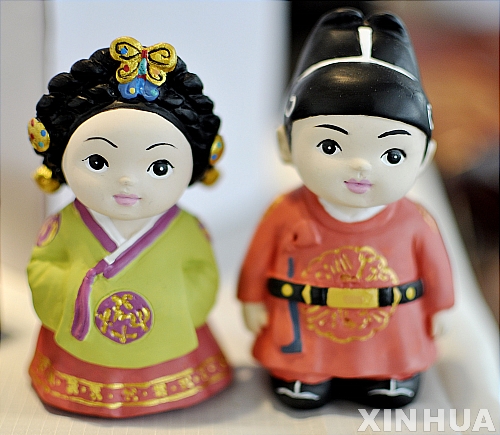Confusing Romanized surnames
Park Moo-jong – The Korea Times
Seri Pak made history yesterday when she left the green after playing the first round of the LPGA KEB Hana Bank Championship in Incheon, with 25 victories and five major championships during the past two decades.
Her legendary career reached the climax at the 2016 Rio de Janeiro Olympics in August as Park In-bee, one of the “Seri kids,” won the gold medal. As South Korean team coach, Pak led Park to the Olympic championship.
Many foreigners have asked me what’s the difference between Pak and Park. “Is Pak different from the Park of President Park Geun-hye?” someone questioned.
When Pak became an overnight golf sensation at the age of 20 by winning the U.S. Open in 1998, South Korea had another famous sports star, Park Chan-ho, the first Korean Major Leaguer pitching for the Los Angeles Dodgers.
The late Park Chung-soo (1932-2003), first foreign affairs and trade minister of the Kim Dae-jung administration (1998-2003), was popular at a golf course in Manila, the Philippines, where the ASEAN regional forum was being held a week after Pak’s victory.
He brought boxes of golf balls autographed by Pak Se-ri, and presented them to foreign ministers attending the forum.
Appreciative of the unexpected souvenirs, the recipients asked Park if his name was the same as the rising golf prodigy’s. Park said with pride, “Yes, it’s the same.”
Dodgers pitcher Park, praising Pak after her U.S. Open victory, said, “We have the same name of ‘박’ in Korean, but in English (Romanization, specifically) it’s different. I wish our surnames in English were the same.”
The Korean family name, “박,” the third most common surname after Kim and Lee, is traditionally known as Park in Romanized English, as in former president Park Chung-hee (1917-1979), his daughter President Park Geun-hye, former lobbyist Park Tong-sun of the so-called “Koreagate”, Olympic gold medalist Park In-bee and swimming star Park Tae-hwan, to name a few.
Although they are all from the family of “박,” their Romanized surnames are spelled differently.
To foreigners, Park and Pak are different names.
Similar confusion takes place over many other Korean surnames.
The second most common family name in Korea is “이” behind Kim, and is Romanized as Lee mostly. But the country’s first President’s name was spelled Dr. Syngman Rhee and the royal family of the Yi Dynasty (1392-1910) used the spelling Yi, while North Koreans uniformly use Li.
There are some prominent figures with the family name of “노” pronounced “no” but everyone has their own Romanized spelling: former president Roh Tae-woo, former prime minister Lho Shin-young, former ambassador to Britain Roe Chang-hee and former vice National Assembly speaker No Seung-hwan.
Former President Roh Moo-hyun (1946-2009) used to be “Noh Mu-hyun” that is a more accurate pronunciation, but changed it to Roh due to the negative pronunciation of Noh before his election, he told senior journalists during a luncheon at Chong Wa Dae in May 2003.
Another example of problematic phonetic transliteration is “신” as in novelist Shin Kyung-sook (‘Please Look After Mom’) or film director Shin Sang-ok; this means the front part of the leg below the knee. A possible alternative, “Sin” is generally thought to be too negative due to its immoral connotations. A viable alternative is “Sinn” like Pearl Sinn, a Korean-American LPGA golfer.
These are some examples showing the chaotic Romanized spelling of Korean surnames, setting aside the controversial Romanization formula, the government went against the traditional McCune-Reischauer system in 1999, causing major confusion.
The confusion in the Romanization of names must be addressed at the earliest possible date so as to avoid inconstancies like that between Seri Pak and Park In-bee.
An unvarying principle must be applied to the Romanization of surnames that respects the usual practice of using Kim, Lee, Park or Chung.
It is recommended that each citizens’ name, Romanized according to this principle, be recorded in his or her resident register and passport, so that it cannot be changed freely.
At the very least, the Romanized spelling of a family should not differ from person to person in this era of globalization.
The following joke which was popular around 2003 tells of the seriousness about the Romanization of Korean names.
A former U.S. president asked his secretary of state after the presidential election in South Korea, “Who is the new leader of South Korea?”
“No, Sir,” the secretary replied without a pause.
“No, I asked who is going to lead South Korea now?”
“Yes, No, Sir,” the secretary said.
We need to take a lesson from Taiwan and North Korea which both have adopted a unified Romanization formula for family names.
On this occasion, the government needs to review the current Romanization of the Korean alphabet, which was adopted in July 2000 by the Kim Dae-jung administration under the initiative by culture-tourism minister Park Ji-won, now a leader of the People’s Party, against strong public and foreign opposition.
Former finance-planning minister Kang Man-soo used to complain, “I have to change my surname to Gang according to the new formula. I am not a gangster.” Gimpo International Airport should be Kimpo International Airport and the current Busan International Film Festival (BIFF) should return to Pusan International Film Festival.


























































